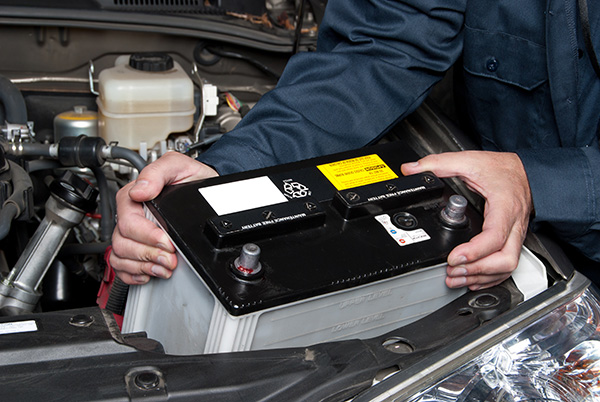
Few things are more frustrating than heading out in the morning, turning the key—or pressing the start button—and hearing nothing but a weak click. If your battery keeps dying faster than it should, something isn’t right. Car batteries are designed to last several years and hold a charge for days, even weeks, without driving. So when they start draining overnight or unexpectedly, it’s a sign that something’s pulling power when it shouldn’t.
If your battery can’t hold a charge or goes dead too often, here are the most common causes and what you can do about them.
1. Parasitic Battery Drain
Even when your car is turned off, certain systems—like the clock, alarm, or keyless entry—continue drawing a tiny amount of power. That’s normal. But if something else is staying on when it shouldn’t, it can drain the battery in a matter of hours.
This is called a “parasitic drain,” and it’s often caused by things like:
- Interior lights that don’t turn off
- A stuck relay
- Faulty aftermarket accessories (like dash cams or alarm systems)
- A control module that doesn’t go into sleep mode
Tracking this down usually requires a technician to test how much current is being drawn while the car is off—and then isolate which circuit is responsible.
2. Failing Battery or Internal Short
Sometimes, the battery itself is to blame. Car batteries don’t last forever, and once they start to weaken, they may not hold a charge even if everything else is working fine. A battery can also develop an internal short, which causes it to drain rapidly even when disconnected from the vehicle.
If your battery is more than three years old—or you’ve had to jump it more than a couple of times lately—it’s worth having it tested. Most shops can do a quick load test to check its health and determine whether it needs to be replaced.
3. Faulty Alternator
The alternator keeps the battery charged while the engine runs. If it fails or starts to weaken, your battery might not get fully recharged—even after a long drive. Some alternators also have built-in voltage regulators, and if those go bad, they can cause overcharging or undercharging.
Symptoms of a failing alternator often include dim headlights, flickering interior lights, or a battery warning light on the dashboard. If your battery drains while driving, this is a common cause.
4. Loose or Corroded Connections
Battery terminals may seem simple, but they play a huge role in keeping your vehicle powered. If the terminals are loose, dirty, or corroded, it can cause a poor connection—leading to inconsistent charging and starting problems.
You might even notice your electronics glitching or your vehicle randomly resetting. Cleaning the terminals and making sure everything is tight and secure can sometimes solve a mystery battery drain on the spot.
5. Short Trips or Infrequent Driving
If you only drive short distances, your battery may not have enough time to fully recharge between starts. Over time, this leads to a cycle of partial charging, which weakens the battery and makes it more prone to failure.
This is especially common in modern vehicles, which draw more power for electronics even when parked. If you don’t drive often, consider using a battery maintainer or scheduling slightly longer drives a few times a week.
6. Extreme Temperatures
Heat is tough on batteries, and cold weather can limit their ability to hold a charge. In summer, high temperatures can evaporate battery fluid and accelerate internal wear. In winter, the chemical reaction inside the battery slows down, reducing its effectiveness.
In areas like North Carolina and South Carolina, where seasonal temperature swings are common, battery performance can suffer without warning. A battery that’s already weak may not survive a sudden cold snap—or a particularly hot day.
Woodie’s Auto Service & Repair Centers – Battery Testing and Electrical Diagnostics in NC & SC
With 17 convenient locations across North Carolina and South Carolina, Woodie’s Auto Service & Repair Centers is here to help when your battery keeps dying or you suspect an electrical issue. Our technicians can run full battery and charging system diagnostics, track down parasitic drains, and recommend the right fix—so you’re not left stranded. Stop by today and let us get to the root of the problem.